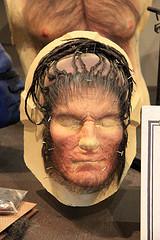 In other words, the fact that immigrants are in host country social and institutional environment that makes their illicit enterprises are possible normally considered unworthy of any analytical effort. a Some definitions of transnational crime imply a notion of ethnic succession. According to this concept, groups of national cultures and is expected to climb the ladder of crime and eventually occupy a prominent position on illegal markets. Official classifications of organized crime, for example, have often been inspired by the skills and ethnic categories. Has long been disputed criminological analysis the "trap of ethnicity", both by the large number of ethnic groups involved in transnational organized crime and the interaction involving companies in professional matters.
In other words, the fact that immigrants are in host country social and institutional environment that makes their illicit enterprises are possible normally considered unworthy of any analytical effort. a Some definitions of transnational crime imply a notion of ethnic succession. According to this concept, groups of national cultures and is expected to climb the ladder of crime and eventually occupy a prominent position on illegal markets. Official classifications of organized crime, for example, have often been inspired by the skills and ethnic categories. Has long been disputed criminological analysis the "trap of ethnicity", both by the large number of ethnic groups involved in transnational organized crime and the interaction involving companies in professional matters.
Given the increasing social, geographical and cultural links between mobility, ethnicity can be considered less as a causal factor or the facilitation of mobility itself. It should pay more attention to analyzing how geographic, social and cultural factors can facilitate the mobility of professional enterprises. More specifically, the analysis should focus on how the professional activities carried out by foreigners need a receptive environment, along with a range of partners and agents in countries where professional activities are carried out. Many officials are concerned that, because migrant communities or marginalized ethnic groups are the settlers, who are believed to support professional enterprises run by their compatriots. This belief must be challenged, and the easy equation of equality of migrants, more marginalization of the crime must be severely criticized. In this respect, a different issue could be explored, namely that ethnic minority groups, in order to develop professional entrepreneurship, need partners among the indigenous groups of the host society marginalizing itself.